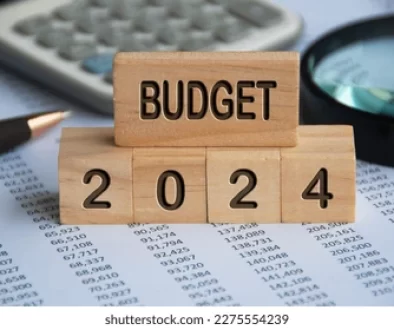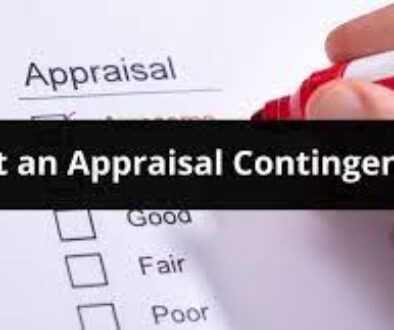Conventional 100 Mortgage
What Is a Conventional Mortgage or Loan?
A conventional mortgage is a homebuyer’s loan made through a private lender. Compared to a Federal Housing Administration (FHA) loan a conventional loan often offers a higher interest rate. It can also require a higher credit score to qualify.
Conventional loans are not offered or secured by a government entity. Instead, these mortgages are available through private lenders, such as banks, credit unions, and mortgage companies.
However, some conventional mortgages can be guaranteed by the two government-sponsored enterprises (GSEs): the Federal National Mortgage Association (Fannie Mae) and the Federal Home Loan Mortgage corp. (Freddie Mac).
KEY TAKEAWAYS
- A conventional mortgage or conventional loan is a homebuyer’s loan that is not offered or secured by a government entity.
- It is available through or guaranteed by a private lender or the two government-sponsored enterprises (GSEs): Fannie Mae and Freddie Mac.
- Potential borrowers need to complete an official mortgage application and supply required documents, their credit history, and current credit score.
- Conventional loan interest rates tend to be higher than those of government-backed mortgages, such as Federal Housing Administration (FHA) loans.
Understanding Conventional Mortgages and Loans
Conventional mortgages typically have a fixed rate of interest, which means that the interest does not change throughout the life of the loan. Conventional mortgages or loans are not guaranteed by the federal government and, as a result, typically have stricter lending requirements by banks and creditors.
There are a few government agencies that secure mortgages for banks, such as the Federal Housing Administration which offers low down payments and no closing costs. Two other agencies are the U.S. Department of Veterans Affairs(VA) and the U.S. Department of Agriculture’s (USDA’s) Rural Housing Service, neither of which requires down payment assistance. However, there are requirements that borrowers must meet to qualify for these programs.
Upfront fees on Fannie Mae and Freddie Mac home loans changed in May 2023. Fees were increased for homebuyers with higher credit scores, such as 740 or higher, while they were decreased for homebuyers with lower credit scores, such as those below 640. Another change: Your down payment will influence what your fee is. The higher your down payment, the lower your fees, though it will still depend on your credit score. Fannie Mae provides the Loan-Level Price Adjustments on its website.
Example of Conventional Mortgage
If you meet the relatively strict requirements to qualify for a conventional mortgage, this can be an inexpensive way to borrow money to buy property.
If, for example, you took out a conventional mortgage to buy a home worth $500,000, had a $100,000 down payment (that’s 20%), and a good credit score of 650, you might be able to get a conventional mortgage with a locked-in rate of 3.4% (as of July 2022). This would equate to a monthly payment of around $2,500 on a 30-year loan: $1,800 in principle and interest payments, and around $700 in taxes and insurance.
Conventional Mortgage vs. FHA Mortgage
The primary difference between conventional and FHA mortgages is that FHA loans are designed to make homeownership possible and easier for low- to moderate-income borrowers who may not otherwise be able to get financing because of a lack of or a poor credit history or because they have limited savings.
Those who qualify for an FHA loan require a lower down payment. And the credit requirements aren’t nearly as strict as other mortgage loans—even those with credit scores below 580 may get financing. These loans are not granted by the FHA itself. Instead, they are advanced by FHA-approved lenders.
In contrast, to qualify for a conventional loan, consumers typically must have stellar credit reports with no significant blemishes and credit scores of at least 680. Conventional loan interest rates vary depending on the amount of the down payment, the consumer’s choice of mortgage product, and current market conditions.
Conventional vs. Conforming
Conventional loans are often erroneously referred to as conforming mortgages or loans. While there is overlap, the two are distinct categories.
A conforming mortgage is one whose underlying terms and conditions meet the funding criteria of Fannie Mae and Freddie Mac. Chief among those is a dollar limit, set annually by the Federal Housing Finance Agency (FHFA).In most of the continental United States, a loan must not exceed $647,200 in 2022 (up from $548,250 in 2021).
So while all conforming loans are conventional, not all conventional loans qualify as conforming. For example, a jumbo mortgage of $800,000 is a conventional mortgage but not conforming because it surpasses the amount that would allow it to be backed by Fannie Mae or Freddie Mac.
In 2020, there were 8.3 million homeowners with FHA-insured mortgages. The secondary market for conventional mortgages is extremely large and liquid. Most conventional mortgages are packaged into pass-through mortgage backed securities (MBS), which trade in a well-established forward market known as the mortgage to be announced market. Many of these conventional pass through securities are further securitized into collateralized mortgage obligations (CMOs).
Types of Conventional Mortgages
There are several types of conventional mortgage, and the terms used to refer to them can be confusing. Here are the most common types.
- Conforming conventional loans: As mentioned above, conforming conventional loans are loans that adhere to the standards set by Fannie Mae and Freddie Mac.
- Jumbo loans: Jumbo loans allow you to borrow more than the maximum lending limit for conforming loans. However, they typically require a higher credit score, lower debt-to-income (DTI), and larger down payment.
- Portfolio loans: A portfolio loan is a conventional loan that a lender chooses to keep in its own portfolio rather than selling it on the secondary market.
- Subprime loans: Conforming loans require that you have a DTI below 50% and a credit score of 620 or higher. But if your credit isn’t quite there, you may qualify for a subprime mortgage loan.
- Amortised conventional loans: These loans are fully amortised , giving homebuyers a set monthly payment from the beginning to the end of the loan repayment period.
- Adjustable-rate loans: With an adjustable-rate mortgage, you’ll get a fixed interest rate for a set period, typically three to 10 years. After that, your interest rate can vary each year.
Required Documentation for a Conventional Mortgage
In the years since the subprime mortgage meltdown in 2007, lenders have tightened the qualifications for loans—“no verification” and “no down payment” mortgages have gone with the wind, for example—but overall, most of the basic requirements haven’t changed Potential borrowers need to complete an official mortgage application (and usually pay an application fee), then supply the lender with the necessary documents to perform an extensive check on their background, credit history, and current credit score.
No property is ever 100% financed. In checking your assets and liabilities a lender is not only looking to see if you can afford your monthly mortgage payments, which usually shouldn’t exceed 28% of your gross income. The lender is also looking to see if you can handle a down payment on the property (and if so, how much), along with other up-front costs, such as loan origination or underwriting fees, broker fees, and settlement or closing costs, all of which can significantly drive up the cost of a mortgage. Among the items required are:
- Proof income
These documents will include but may not be limited to:
- Thirty days of pay stubs that show income as well as year to date income
- Two years of federal tax returns.
- Sixty days or a quarterly statement of all asset accounts, including your checking, savings, and any investment accounts
- Two years of W-2 statements.
Borrowers also need to be prepared with proof of any additional income, such as alimony or bonuses.
- 2. Assets
You will need to present bank statements and investment account statements to prove that you have funds for the down payment and closing costs on the residence, as well as cash reserves. If you receive money from a friend or relative to assist with the down payment, you will need gift letters which certify that these are not loans and have no required or obligatory repayment. These letters will often need to be notarized.
- Employment Verification
Lenders today want to make sure they are loaning only to borrowers with a stable work history. Your lender will not only want to see your pay stubs but also may call your employer to verify that you are still employed and to check your salary. If you have recently changed jobs, a lender may want to contact your previous employer. Self-employed borrowers will need to provide significant additional paperwork concerning their business and income.
- 4. Other Documentation
Your lender will need to copy your driver’s licence or state ID card and will need your social security number and your signature, allowing the lender to pull your credit report.
Interest Rates for Conventional Mortgages
Conventional loan interest rates tend to be higher than those of government-backed mortgages, such as FHA loans (although these loans, which usually mandate that borrowers pay, may work out to be just as costly in the long run).
The interest rate carried by a conventional mortgage depends upon several factors: mortgage insurance premium,including the terms of the loan—its length, its size, and whether the interest rate is fixed or adjustable—as well as current economic or financial market conditions. Mortgage lenders set interest rates based on their expectations for future inflation; the supply of and demand of mortgage-backed securities also influences the rates. A mortgage calculator can show you the impact of different rates on your monthly payment.
Special Considerations for a Conventional Mortgage or Loan
These types of loans are not for everyone. Here’s a look at who is likely to qualify for a conventional mortgage and who is not.
Who May Qualify
People with established credit and stellar credit reports who are on a solid financial footing usually qualify for conventional mortgages. More specifically, the ideal candidate should have:
- A fair or better credit score. A credit score is a numerical representation of a borrower’s ability to pay back a loan. Credit scores include a borrower’s credit history and the number of late payments. A credit score of at least 620 and possibly higher can be required for approval. Also, the higher the score, the lower the interest rate on the loan, with the best terms being reserved for those with an excellent score.
- An acceptable debt-to-income (DTI) ratio. This is the sum of your monthly debt payments, such as credit cards and loan payments, compared to your monthly income. Ideally, the DTI ratio should be around 36% and no more than 43%. In other words, you should spend less than 36% of your monthly income on debt payments.
- A down payment of at least 20% of the home’s purchase price readily available. Lenders can and do accept less, but if they do, they often require that borrowers take out private mortgage insurance and pay its premiums monthly until they achieve at least 20% equity in the house.
In addition, conventional mortgages are often the best or only recourse for homebuyers who want the residence for investment purposes or as a second home, or who want to purchase a property priced over $500,000.
Who May Not Qualify
Generally speaking, those who are just starting out in life, those with a little more debt than normal, and those with a modest credit rating often have trouble qualifying for conventional loans. More specifically, these mortgages would be tough for those who have:
- Suffered bankruptcy or foreclosure within the past seven years
- Credit scores below 650
- DTI ratios above 43%
- Less than 20% or even 10% of the home’s purchase price for a down payment
However, if you’re turned down for the mortgage, be sure to ask for the reasons in writing. You may qualify for other programs that could help you get approved for a mortgage.
For example, if you have no credit history and are a first time buyer you may qualify for an FHA loan. FHA loans are tailored specifically for first-time homebuyers. As a result, FHA loans have different qualifications and credit requirements, including a lower down payment.
What’s the Difference Between a Federal Housing Administration (FHA) Loan and a Conventional Loan?
FHA loans are designed to make homeownership possible and easier for low- to moderate-income borrowers with poor credit history or limited savings. Conventional loan interest rates tend to be higher than those of government-backed mortgages, such as FHA loans, and you will need a higher credit score and down payment to qualify.
Is It Better to Go FHA or Conventional?
A conventional loan is often better if you have good or excellent credit because your mortgage rate and private mortgage insurance (PMI) costs will go down. But an FHA loan can be perfect if your credit score is in the high 500s or low 600s. For lower-credit borrowers, FHA is often the cheaper option. However, it’s worth checking both options, because the best way to borrow can depend on many factors.
What Credit Score Do I Need for a Conventional Loan?
Fannie Mae says conventional loans typically require a minimum credit score of 620, but it can vary by lender. Banks may be more willing to lend to people with a significant down payment.
The Bottom Line
A conventional mortgage or conventional loan is a homebuyer’s loan that is not offered or secured by a government entity. They are often compared to FHA loans, which are designed to allow low-income families, or those with low credit scores or little savings, to access mortgage loans.
Conventional mortgages are available via private lenders or the two government-sponsored enterprises (GSEs): Fannie Mae and Freddie Mac. Potential borrowers need to complete an official mortgage application, supply required documents, credit history, and current credit score. Conventional loan interest rates tend to be higher than those of government-backed mortgages, such as FHA loans, unless you have an excellent credit rating.




